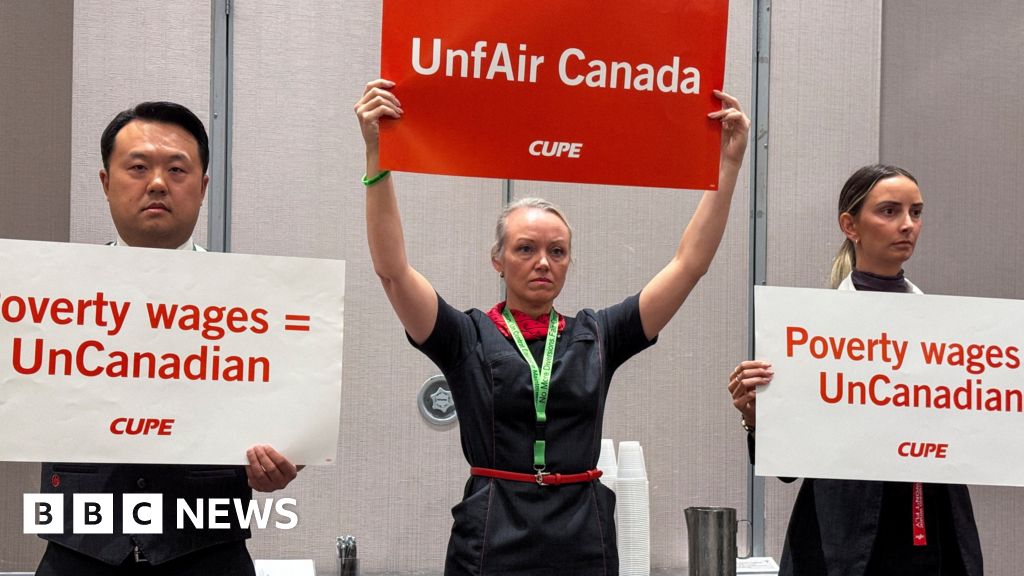
Air Canada flights will officially resume following government intervention that ended a strike by more than 10,000 cabin crew members, resulting in over 700 flight cancellations. The strike had taken effect early Saturday, causing significant disruption to passengers across Canada and worldwide.
Government Orders Arbitration to Resolve Dispute
The Canadian Industrial Relations Board (CIRB) mandated that all flight attendants return to work by 2 PM EDT (6 PM GMT) on Sunday. In addition, a collective agreement that expired on March 31 was extended until a new one could be agreed upon. Jobs Minister Patty Hajdu ensured stability by invoking Section 107 of the Canada Labour Code, initiating binding arbitration to resolve unresolved issues between the union and Air Canada.
Key Issues in the Air Canada Strike
Flight attendants, represented by the Canadian Union of Public Employees (Cupe), called for higher wages and compensation for time spent working on the ground, such as during boarding and waiting periods. Cupe criticized the government’s intervention, stating that it “violates charter rights” and could lead to further unresolved disputes. The union had been pushing for increased pay, rejecting Air Canada’s proposal of a 38% total compensation increase across four years, including a 25% raise in the first year, claiming it was below inflation and market standards.
Impact on Passengers and Operations
Air Canada, which operates flights to 180 global destinations, suspended all flights, including its budget arm Air Canada Rouge, during the strike. Passengers were advised against traveling to airports unless alternative arrangements were made. While flights are scheduled to resume Sunday evening, Air Canada cautioned that it may take up to 10 days for the airline’s operations to stabilize, with potential cancellations continuing during this period. The airline issued an apology, stating, “Air Canada deeply regrets the inconvenience for its customers.”
Union Pushback and Future Negotiations
Cupe accused Air Canada of seeking government-mediated arbitration instead of negotiating in good faith. The union noted that 99.7% of its members voted in favor of striking earlier in the month and argued that forced arbitration undermines workers’ rights and prolongs unresolved issues. According to Cupe, they have been advocating for improved contracts for over eight months while maintaining good faith negotiations. The union’s reaction to the directive to end the strike is pending at this time.
The air travel industry continues to grapple with labor disputes, a growing challenge as workers demand better compensation and working conditions post-pandemic. Passengers affected by canceled flights are advised to monitor Air Canada’s updates closely as the situation unfolds.



